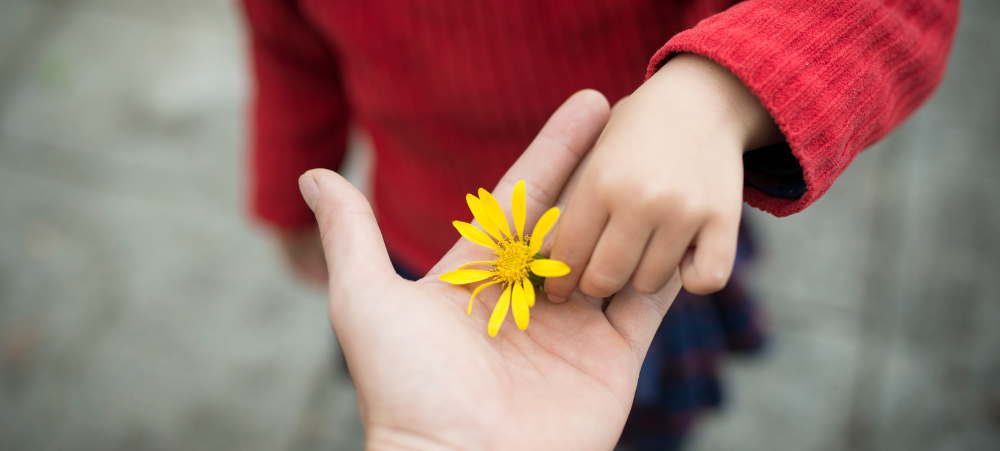There may come a time in your marriage where you realise that your partner’s negative behaviour is becoming detrimental to both you and your children. What do you do in a situation like this? What if your partner won’t accept getting divorced? What if you are not working or are afraid to work longer hours because you’ll lose quality time with your kids? How do you prevent emotional damage to yourself and your children?
Here are some practical guidelines to navigating this very difficult and stressful situation…
Firstly, our law does make allowances for one person in the marriage to insist on a divorce proceeding. I’m not a lawyer, but I do know that you can go ahead with a divorce proceeding from your side whether your partner wants it or not, particularly if you can show that you have real grounds for wanting this – if your partner had an affair, if you have a report from a psychologist regarding any abuse etc. It might help to get some professional advice and there are companies like The Family Law Clinics who offer free legal advice.
It is definitely important, for both you and your children, for you to resolve the situation as quickly as possible. Please be aware that it is absolutely normal for children to act up in situations like this. They will tend to play out the aggression and negativity they experience at home, but also an aggression and negativity that is repressed in the home. Think of their behaviour as a barometer for the emotional environment that they come from.
You or your child’s teacher may even notice some aggressive play and pictures. Please remember that kids process their worlds through play and creativity. It might look negative right now, but they are actually working through their issues and helping to resolve them in their own mind through these actions. This is healthy and necessary and will subside once things settle down.
When wondering how to deal with any aggressive behaviour please keep in mind that all emotions are acceptable, but some behaviours may need to be addressed. First allow your child the space to feel the intensity of the emotion and once calm you can discuss different ways to express this that don’t hurt others.
You don’t need to worry that they will be permanently like this though. Children adapt very quickly and they respond well to improvements in their situation and environment.
What you can do in the meantime is to give them lots of space and support to express their emotions. There is a saying that goes “for the good feelings to come in, the bad feelings first have to come out”. They act out their negative state because they either don’t have the capacity yet to express themselves verbally and have someone understand what they are going through, or because they feel they are not allowed to express it in a safe way. Sometimes, as the parent, we are not the best person for them to chat to, as they are also trying to protect us and our emotions, or they may be angry with us or have some other emotion that they feel they’re not supposed to have. It can be very helpful to have somebody else involved in their lives that they can trust, but who is removed from the situation. Ideally, this would be in a play therapy environment, where they are taught not only that it is safe to express whatever they are feeling (and so don’t have to express it behaviourally) but also coping techniques that they can use throughout their lives when some challenge comes along.
Often in divorce proceedings you are already finically stretched. If you have medical aid or the financial resources to manage it, find a great play therapist that you trust. Alternatively, you can contact an organisation like FAMSA who offer reduced rate or free therapy for kids depending on your situation.
The next thing to look at is the kids’ routine. If you’re having to start a new job or work longer hours you may need to make arrangement for your kids like aftercare or lift schemes. If at all possible, try to get some of their homework, bathing etc done before you get home. Perhaps even chat to the teacher about helping with this during school time to alleviate some of the pressure on you.
I wouldn’t worry about playtime with the kids in the evening. It is more important for them to have a good routine (this helps kids particularly in times of change to feel that the whole world is not falling apart) and sleep is essential for anyone trying to deal with stress.
Of course you will want some quality time with the kids in the day, and if you can manage this it will definitely help. Keep in mind, though, that quality time doesn’t need to be a lot of time. It can be five minutes of connecting at bedtime, it can be the conversation you have over dinner, or the wet hug as they get out of the bath. You can also make sure that you maximise on the weekends in terms of fun things that you do together.
Just be careful of alleviating any guilt you may have by keeping them up later so that you can spend time with them. That evening time may actually add additional stress, in which case they would be better off with a bit more sleep.
The one other thing that you can do to help while this situation gets resolved is to manage your own stress levels. Focus on deep breathing, make sure you connect with people and experiences that support and nurture you, get enough sleep yourself, and be patient and kind to yourself. You are in a very intense situation, and you need to give yourself some credit for where you are handling it well.
Also give yourself some credit for what you know and for your ability to raise and care for your children well. This is not easy, but it won’t go on forever. If you and your kids can spend some time away from your partner where everyone can have a breather from the tension that would also help. Look at relatives and friends you could stay with, or even the possibility of moving out before the divorce is finalised.
And please, please, get some support for yourself and your kids. We all need an objective outside person who can help us to process what we’re going through and give a different perspective on things. As they say, “a problem shared is a problem halved”!
The last thing I’d like to add may seem a bit strange, but it is something that I observe in family systems all the time and it is worth being aware of so that you don’t attract another person like this into your life again. Everything in life is balanced, and there are always both sides. The more focus you put in your life onto positivity and wanting things to be one-sided on the positive / happy / calm end of the spectrum, the more you will attract people and situations into your life to show you that life has both sides. And so you will tend to end up with a negative / unhappy / chaotic sort of person. It is just life trying to keep some sort of balance.
Now I’m not saying for one second that you need to stay with a negative partner or subject your kids to this negativity, but just to be aware that if you seek out a life where there is only the “good” side, that you will attract the “bad” to balance it out.
My suggestion in regards to this right now is to spend some time reflecting on two things:
Firstly, the “good” that has come out of this relationship. Look at how you have grown or what you have learned from being in this situation. Have you become stronger; learned to put boundaries in place; got on top of your finances; connected with other people; found your independence; defined your goals? Keep brainstorming anything positive that has come out of his negativity and all the things your partner has done. How has it helped you and your kids?
Secondly, go and look at all the negatives of having a purely positive life. Look at how challenges help us to grow and what growth you would have missed out on if things had just ben easy going. Look at how little you would appreciate the good if that was all there was. Look back on your life and see the benefits in all the struggles you had, and how you tend to plateau in your life when the times are easy.
I understand that this is not an easy exercise to do, and usually I spend a lot of time with my clients building to this point, but if you are able to do it it will help to change your perspective on what is good and bad, and help you not to seek positivity and fear negativity, which in the long run with actually give you a more balanced and realistic life for yourself and your children.
trained in both in traditional therapy, with a BA in Psychology and a certification in Trauma Counselling, and in various alternative therapies including Neuro Linguistic Programming, Life Coaching, Hypnotherapy, Stress Biofeedback, and Time Paradigm Techniques. For more information, please visit her Website for further information
- Questioning Questions: Why your child needs to ask ‘why’… - November 27, 2025
- How To Be Angry Without Destroying Your Kids’ Self-Confidence - November 19, 2025
- Why do children lie? - November 18, 2025





